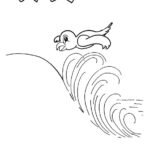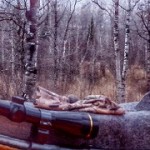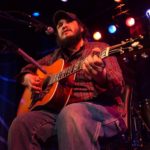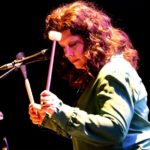Public lecture season…
Universities in our region rarely schedule as many public lectures in the dead of winter the way they schedule them in the spring. Driving is safer for regional guests, while longer daylight means more community members will brave the parking hazards of campuses.
As a result, then, I’ve been to too many public lectures lately. Before they blur into one, let me spin my thoughts:
1. Mike Clark gave a presentation at UWS last week that fascinated me as a teacher of public speaking. His presentation style was folksy, with the earthtone outfits and friendly, park-ranger style vest we might expect of a 21st-century naturalist. But the stories he told were stories of political power, of corporate and national interests in tension in Yellowstone as the park’s advocates fought to resist mining.
The talk addressed the ways that advocates for Yellowstone have dealt with threats inside and outside the park. One of the adjacent states, fearing that the federal government would seek to expand the borders of the park, clearcut all of the adjacent lands so that the park would have nowhere to expand into… Tragic… The lessons for resisting mining have lessons for northern Minnesota… Did anyone else attend, maybe, who had more insight into the analogies for our challenges?
2. The lecture series coordinated by the Department of Social Inquiry as part of their undergrad philosophy course in Teaching and Social Justice enabled me to listen to Kari Norgaard give a presentation on the same day as the Clark presentation. Norgaard’s work explores the role of emotion in shaping and conditioning responses to climate change in Norway.
The presentation was useful to me on two levels. First, as someone working with Wildwoods, her models for the social management of emotions will inflect the way I think about emotion in environmental education. Second, as someone who is desperate to move beyond Garrison Keillor’s models for the Norwegian bachelor farmer to explain my Minnesota neighbors, I found her work helpful in parsing my neighbors.
“Feeling rules and emotion norms tell us what we ought to feel-they prescribe the appropriate range, intensity, duration, and targets of feelings in different situations (Gordon 1990; Hochschild 1979, 1983; Thoits 1989). Unlike psychologists, sociologists of emotion describe emotion as deeply embedded in and reflective of both social structure and culture: “Many of the feelings people feel and the reasons they give for their feelings are social, structural, cultural, and relational in origin” (Denzin 1984:53). Emotion norms in Bygdaby (and Norway generally) emphasized the importance of maintaining control (beholde kontroll) and toughness (aÌŠ være tøff )…”
…not too far from my Minnesotan friends? Are there Duluthian norms for emotion describable in this way?

3. I worked, myself, to bring Mariko Izumi to campus to talk about comfort women and the problems of making documentaries about this controversial, painful dimension of history. “Comfort women” were the victims of the sexual atrocities perpetrated by the Japanese imperial military during the Asia-Pacific War (1930-1945). Mariko explored the question: how do we create a space for articulating the unspeakable, that is, to render memories of suffering meaningful?
Mariko delivered the same presentation at UW-Superior the next day, a testament to the kinds of collaboration possible across state lines and campuses, thanks to the kind collaboration of Dr. LaChance Adams and Dr. Cheong Soon Gan.

Spring really is a remarkable time in Duluth.
Lectures I could not attend but would love to hear about:
Vandana Shiva…

Did anyone attend? Initial buzz was good, but not uncontroversial.
I’m not sure I’m disappointed I missed this one: The Creativity Conference brought “Creativity & New Brain Science featuring Jonah Lehrer and Dr. Martin Shapiro” to UMD. This event in the Sieur du Luht Conference series invited mixed feelings in me… Lehrer has a checkered past as a writer… Did anyone attend?
Upcoming Presentations
Michael Fedo will be reading from Zenith City, his new book, at 1pm on Monday, April 14 at Lake Superior College’s Erickson Library. Then, at 4pm, he will be reading at UMD Kirby Student Center 333 (on the part of the building that extends over Kirby Drive, near the Dining Center for the students who live in the dormitories.
Atina Diffley will be visiting UMD on Tuesday. The winner of the 2013 Minnesota Book Award, Diffley’s book, Turn Here Sweet Corn: Organic Farming Works, is a memoir chronicling her life and the story of the organic farm, Gardens of Eagan, that she and her husband, Martin, ran on the edge of the Twin Cities for many years. Diffley will have two public sessions during her April 15 visit:
– How to win the Minnesota Book Award (2 p.m. to 3:15, Bagley Outdoor Classroom, Bagley Nature Center): In this panel session, Diffley will be joined by Erik Anderson, regional trade editor from the University of Minnesota Press.
– Public reading, “Turn Here Sweet Corn: Organic Farming Works” (7 p.m. to 8:30 p.m., Tweed Museum of Art, Lecture Room). Hope you can attend!

Recommended Links:
Leave a Comment
Only registered members can post a comment , Login / Register Here














No Comments